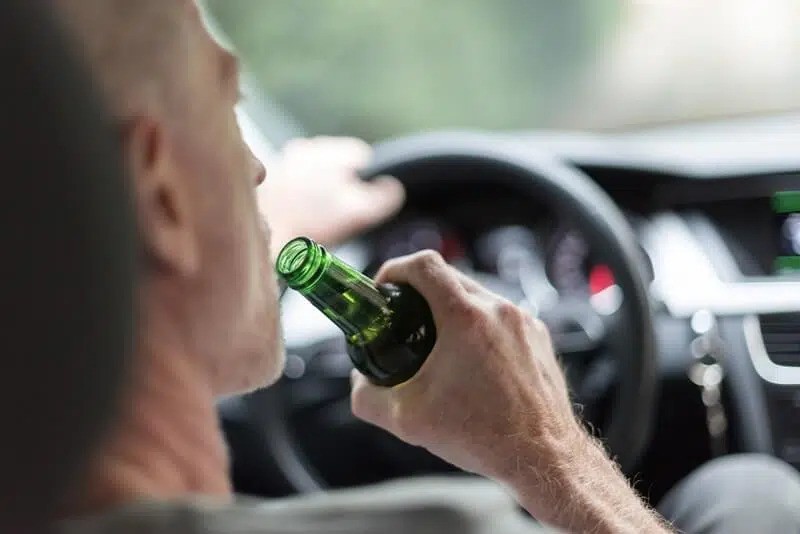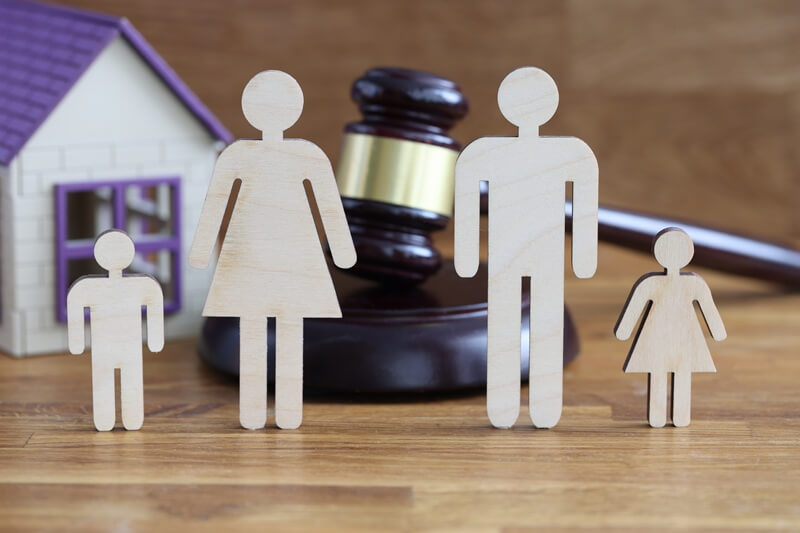A Virginia DUI Lawyer Explains What Drivers Need To Know
A Virginia DUI Lawyer Explains What Drivers Need To Know
Nobody plans on getting pulled over for driving under the influence, but it can happen to anyone. In Virginia, the laws governing this crime are strict and have serious consequences that can impact your life for years. So, if you’ve found yourself in this mess, knowing the basics can make all the difference.
Here, you’ll learn the essential details of Virginia’s DUI laws and aggravating factors that worsen the charge. Find out what to do during a stop, the consequences of refusing tests, and if you can still drive after a conviction. If you’re facing charges, searching “DUI lawyer near me” online can be the first step to finding legal guidance tailored to you.

What Does Virginia Consider Driving Under The Influence?
The law defines DUI as driving while impaired by alcohol, drugs, or a combination of both. The state provides specific guidelines to determine impairment. For liquors, the Blood Alcohol Concentration (BAC) is the critical factor. For adults, a BAC of 0.08% or higher is illegal. Commercial drivers have a stricter limit of 0.04%. If you’re under 21, you’ve got no wiggle room at 0.02%.
It’s not just alcohol that can land you in trouble. Taking prescription drugs, over-the-counter meds, or prohibited substances can also result in a conviction. Just because you picked it up at the pharmacy doesn’t mean you’re off the hook.
If convicted for the first time, you could face a maximum of one year in jail and fines of up to $2,500. The severity of your penalties can vary depending on the specifics of your case. So, it’s wise to consult a Virginia DWI attorney who can gauge what you’re up against.
The law holds you accountable for what’s in your system. That’s why knowing how the state defines DUI is your first step toward staying out of trouble. However, not all charges are created equal—some circumstances make the penalties far worse.
What Aggravating Factors Can Make A DUI Charge Worse?
Getting charged for driving under the influence is bad enough, but some things can pile on and worsen it. Aggravating factors can lead to harsher penalties, like longer jail sentences, higher fines, or even felony charges. These can quickly turn a problematic situation into an uphill battle in court, with far-reaching consequences for your future.
History Of DUIs
If you’ve been charged before, you’re walking on thin ice. In Virginia, penalties increase with each conviction. For example, the mandatory fine jumps from $250 to at least $500 for a second offense. Rack up three charges, and you’re looking at becoming a “habitual offender,” which brings life-altering consequences.
The timing of your offenses also matters a lot. If you get a second DUI within ten years of your first, there’s an automatic minimum jail sentence of 10 days. If it happens within five years of the first, that jumps to a 20-day stay in prison.
Additionally, three DUIs in a decade, and you’re looking at a minimum of 90 days in jail, an indefinite license revocation, and maybe even the loss of your car. These escalating penalties show how seriously Virginia takes repeat offenses.
High Blood Alcohol Content
Drivers with a BAC of 0.15% or higher face stiffer penalties since it shows a greater danger to public safety. You’ll be looking at mandatory jail time and significant fines. In this situation, it’s natural to want solid legal help—you might even search “best DUI attorney near me” online. A lawyer can work to mitigate the impact of the charges on your life.
Presence Of A Minor
If there’s one way to make your DUI charge much worse, it’s driving under the influence with a minor in the car. In Virginia, having a passenger under 18 adds a mandatory minimum of five days in jail on top of any other penalties. Worse yet, you could also be charged with child endangerment, which comes with its own set of penalties.
Driving under the influence with a minor is seen as particularly reckless. It’s like being responsible for a passenger while driving blindfolded—the risks to their safety are far too high to ignore. The courts take this very seriously, so it’s best to avoid putting yourself in this situation.
It’s natural to want to protect yourself and avoid making things worse, especially when the stakes are high. However, you may wonder what happens when facing a decision like refusing a breath or blood test. It’s a tough call, and knowing how it impacts your case is critical.
Can You Refuse A Breath Or Blood Test?
Refusing a breath or blood test may seem like an option when pulled over. However, once you’ve been lawfully arrested for DUI, the answer is “no.” Virginia’s implied consent law means that you automatically agree to submit to these tests if legally charged by driving on the state’s roads.
Refusing a breath or blood test can result in a one-year license suspension for a first refusal. A second offense within ten years carries a more severe penalty—a three-year suspension. Additionally, it could make your defense harder because the prosecution may argue that the refusal suggests guilt. Without the results, you also lose the chance to challenge the accuracy of the readings.
If you’re convicted, you might wonder what your future as a driver looks like. Losing your license is a significant concern, but Virginia offers limited options for those seeking to regain some driving privileges.
Is It Possible To Still Drive After A DUI Conviction?
Losing your license after a DUI conviction is a big blow, but it’s not necessarily the end of your ability to drive. In Virginia, you may be eligible for a restricted license after a conviction. This allows you to drive to specific places, like work, school, or medical appointments.
Of course, this isn’t handed out freely. You must complete an alcohol safety program first. The court will then decide if you qualify based on various factors, including your criminal record and the specifics of your case. Searching “DUI lawyer near me” online can help you find the guidance needed to work towards getting back on the road.
However, there’s a catch. You’ll need to install an ignition interlock device for not less than six months, even if it’s your first DUI. This device won’t let your car start unless you pass a breathalyzer test each time you try to drive.
Driving with an ignition interlock device may seem inconvenient, but it’s better than being entirely without transportation. It’s more like having a safety harness—it’s not the freedom you’re used to, but it allows you to get back on the road with extra precautions.
While these restrictions can help you regain some driving privileges, no one wants to end up in this situation. Handling yourself well during the initial stop is the best way to avoid these consequences.
What Should You Do During A Stop?
Getting pulled over can make anyone’s heart race, but keeping a cool head is vital. It’s not the time to panic; how you handle yourself could help or hurt your case. Here are some things to keep in mind:
- Stay Calm & Polite: Keep your hands visible and remain respectful when interacting with the officer.
- Provide Basic Information: Hand over your driver’s license, registration, and insurance. When you can, avoid offering unnecessary details.
- Exercise Your Right to Remain Silent: You can politely decline to answer inquiries that may incriminate you. Remember, anything you say can—and probably will—be used against you in court.
- Refuse Field Sobriety Tests: You are not legally required to perform roadside sobriety tests like walking a straight line. These tests can be subjective and could trip you up even if you’re sober.
- Request Legal Counsel: If you’re unsure where to start, searching for the words “DWI attorney near me” on the internet can connect you with the legal help you need. Then, sit tight and wait—avoid further conversation before a defense lawyer arrives.
Following these steps can be helpful in protecting your rights and avoid worsening your situation. Once you’ve secured a defense attorney, you’ll have a better chance of addressing your charges and fighting for a favorable outcome.
Why Choose The Irving Law Firm For Your DUI Defense?

At The Irving Law Firm, we know that a DUI can turn your life upside down. Whether this is your first time dealing with it or you’ve been down this road before, it can leave you stressed about what’s coming next. We’re here to help you through it, step by step, because no one should face this alone.
What sets us apart is our legal team’s genuine commitment to each client. You’ve got a lot on the line—your job, family, and future—and we don’t take that lightly. We take the time to truly understand your situation and work hard to protect your rights. When your back’s against the wall, you need someone who will fight for you with everything they’ve got.
We’re more than just lawyers—we’re your advocates. We’re here to help you through this storm and get you to the other side. When you choose The Irving Law Firm, you get a team that will stand up for you and help you move forward with your life, one step at a time.
Summary
Virginia defines DUI as driving impaired by drugs, alcohol, or a combination of both, with specific BAC limits for adults, minors, and commercial drivers. Aggravating factors like prior offenses, high blood alcohol content levels, or driving with a minor can increase penalties. If lawfully arrested, Virginia’s implied consent law requires you to submit to breath or blood tests.
A defense lawyer can assist you in understanding your rights and explore options for minimizing penalties. Throughout this, The Irving Law Firm provides a personalized, committed defense to help you navigate your charges. With their experience, you’ll have the guidance to protect your future.




